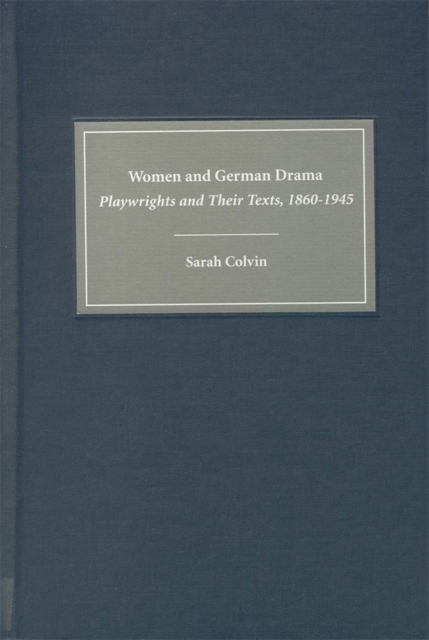
Women and German Drama : Playwrights and Their Texts 1860-1945 PDF
by Sarah Colvin
Part of the Studies in German Literature Linguistics and Culture series
Description
Explores the traditional bias against women's drama and asks to what extent women playwrights have been able to overcome it.
For women, according to the contemporary Austrian dramatist Elfriede Jelinek, writing for the theater is an act of transgression. The idea that drama as a grand public genre resists women writers has become established in recent scholarship. But Jelinek herself has won the Buchner Prize, the most prestigious award in German letters, and there is a wealth of dramatic work by women from the 20th century and before: both facts seem to contradict the notion ofwomen's exclusion from drama. So why has drama by women appear to have been written against the odds, and why has it, until very recently, been missing from literary histories? This book looks in detail at women's playwriting inGerman between 1860 and 1945, and at its reception by critics. Many of the works considered have never before been analyzed by modern scholarship; others, notably the plays of Marieluise Fleisser and Else Lasker-Schuler, are wellknown, but are read here for the first time in the context of earlier dramatic work by women. Sarah Colvin seeks modes of reading that do justice both to the dramatic texts as performance texts, and to the sense of "otherness" experienced by the woman writer in a male-dominated literary and theatrical environment. She concludes that an understanding of the techniques developed by women playwrights of the nineteenth and early twentieth centuries canenrich our reading not only of Fleisser and Lasker, but of contemporary dramatists such as Jelinek. If all the world's a stage, playwrights can theoretically be seen as in control of the world they create; this book asks to what extent women dramatists manage to use the space of the drama to reflect the world that they experience.
Sarah Colvin is Reader in German at the University of Edinburgh.
Information
-
Download - Immediately Available
- Format:PDF
- Pages:221 pages
- Publisher:Boydell & Brewer Ltd
- Publication Date:03/02/2003
- Category:
- ISBN:9781571136329
Information
-
Download - Immediately Available
- Format:PDF
- Pages:221 pages
- Publisher:Boydell & Brewer Ltd
- Publication Date:03/02/2003
- Category:
- ISBN:9781571136329










